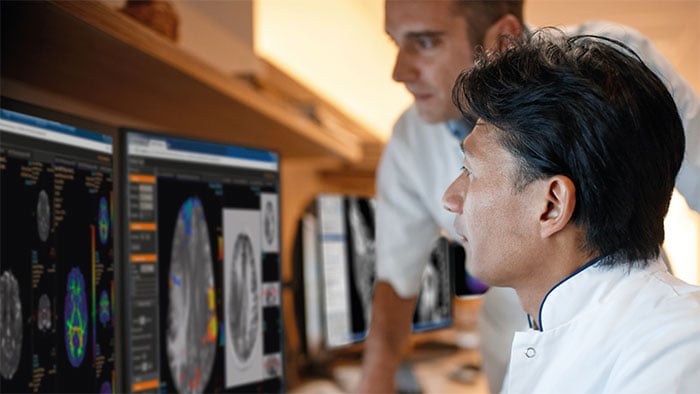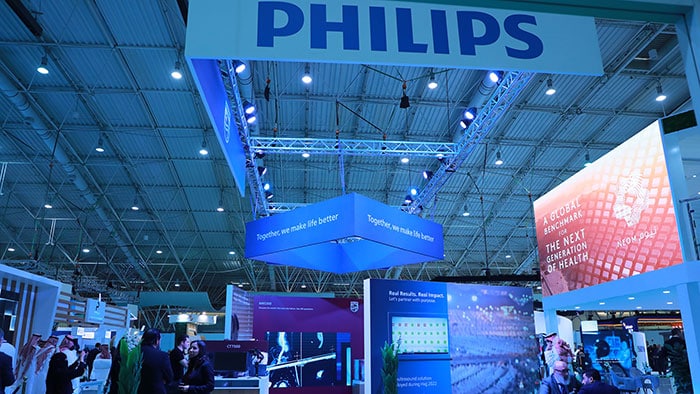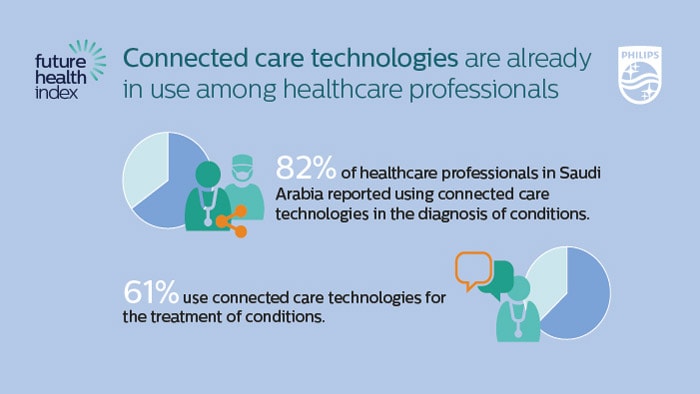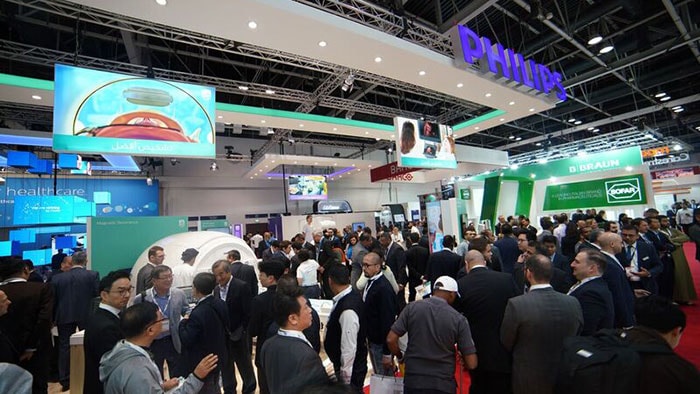Nov 20, 2018
Philips launches IntelliSpace Discovery* Research platform at RSNA to support the development and deployment of Artificial Intelligence assets in radiology
Powered by Philips HealthSuite, open platform offers radiologists comprehensive data analytics in medical imaging
Amsterdam, The Netherlands - Ahead of the 2018 Radiological Society of North America Annual Meeting (RSNA), Royal Philips (NYSE: PHG, AEX: PHIA), a global leader in health technology, today announced the introduction of IntelliSpace Discovery 3.0, a comprehensive, open platform to enable the development and deployment of Artificial Intelligence assets in radiology with the aim to support radiologists in their clinical and translational research. Solutions that leverage AI have the potential to improve patient care and increase the efficiency of care delivery. However, there are challenges when it comes to introducing AI into healthcare clinical practice. Health systems are consistently faced with questions on how to collect and prepare high quality data, which methods of training and validating the tools are most appropriate, and how to deploy AI without disruption. Philips combines AI and other technologies with knowledge of the clinical and operational context in which they are used – a people-centered approach called ‘adaptive intelligence’ – to develop integrated solutions that adapt to the needs of healthcare providers.
AI for Radiology
IntelliSpace Discovery is already a proven research platform, used by more than 50 hospitals and academic institutions worldwide, for the development of radiology applications for rendering, segmentation, and quantification. For example, it is being used for research and clinical validation and subsequently the tools/applications can be deployed into the radiology workflow on the Philips IntelliSpace Portal [1]. With the introduction of IntelliSpace Discovery 3.0 the platform now provides research applications and tools for radiologists to aggregate, normalize and anonymize data, which can be visualized and annotated to ‘train’ and validate deep learning algorithms. They can then easily deploy these algorithms as plug-in apps into the research workflow to analyze new datasets and help facilitate clinical research in radiology, oncology, neurology and cardiology.
“We use IntelliSpace Discovery to bring our research activities to the next level. Everybody is talking about Artificial Intelligence. We are making our own deep learning AI algorithms,” said Professor David Maintz, Head of the Department of Radiology of the University Hospital Cologne in Germany.
We use IntelliSpace Discovery to bring our research activities to the next level. Everybody is talking about Artificial Intelligence. We are making our own deep learning AI algorithms.
David Maintz
Head of the Department of Radiology of the University Hospital Cologne in Germany
“Together with our customers we’re enabling research in adaptive intelligence with the goal to create solutions that augment healthcare professionals and improve patient care and efficiencies of care delivery, both inside and outside of the hospital,” said Jeroen Tas, Chief Innovation & Strategy Officer, Philips. “AI is the connective tissue to seamlessly integrate data and technology to enable precision diagnosis. At RSNA 2018 we’re showing how AI is laying the foundations for solutions of the future.” The building blocks of IntelliSpace Discovery* include:
Another example of a solution showcased at RSNA that is powered by adaptive intelligence is Philips Illumeo. Pulling data from various hospital sources, this intelligent software presents a holistic view of the patient and provides relevant tools that adapt to physician needs, offering insights and standardizing their workflow based on their own preferences. A press backgrounder with more information how Philips pioneers adaptive intelligence in health technology to advance value-based healthcare can be found here.
Philips to speak about AI-powered innovation at RSNA
Building on its thought leadership in AI, Jeroen Tas will host a fireside session on how radiologists can integrate the power of artificial intelligence in their research workflows, taking place on Monday, Nov. 26, at 1:45 p.m. CT in the PhilipsLive! Forum in the Philips booth #6573. He will be joined by Michael Knopp, MD, PhD, Director of the Wright Center of Innovation in Biomedical Imaging and a member of the Translational Therapeutics Program at the OSUCCC and Michael Perkuhn, MD, MSc., Philips research informatics expert in the field in the field of molecular medicine and medical imaging. Philips Homer Pien will also be presenting on “Adaptive Intelligence and radiology efficiency,” on Monday, Nov. 26, at 11:30 a.m. CT in the Machine Learning Showcase, booth #6573. Philips is also participating in a corporate symposium on “Artificial Intelligence: The impact and implications to radiology,” on Tuesday, Nov. 27 from 9:00 – 10:30 a.m. CT in room #S101 AB. The expert-led discussion will focus on the benefits of incorporating AI within the radiology space, including identification and worklist prioritization, workflow efficiency and productivity, and supporting clinical diagnosis and treatment. For more information on Philips’ full portfolio of integrated smart systems, software and services, including its AI-focused solutions at #RSNA18, and for live updates throughout the event, follow @PhilipsLiveFrom or visit www.philips.com/rsna. * Philips IntelliSpace Discovery is for Research use only and cannot be used for patient diagnosis or treatment selection. [1] Tools/applications deployed to ISP are compliant with medical device regulations.
About Royal Philips
Royal Philips (NYSE: PHG, AEX: PHIA) is a leading health technology company focused on improving people's health and enabling better outcomes across the health continuum from healthy living and prevention, to diagnosis, treatment and home care. Philips leverages advanced technology and deep clinical and consumer insights to deliver integrated solutions. Headquartered in the Netherlands, the company is a leader in diagnostic imaging, image-guided therapy, patient monitoring and health informatics, as well as in consumer health and home care. Philips generated 2017 sales of EUR 17.8 billion and employs approximately 77,000 employees with sales and services in more than 100 countries. News about Philips can be found at www.philips.com/newscenter.









